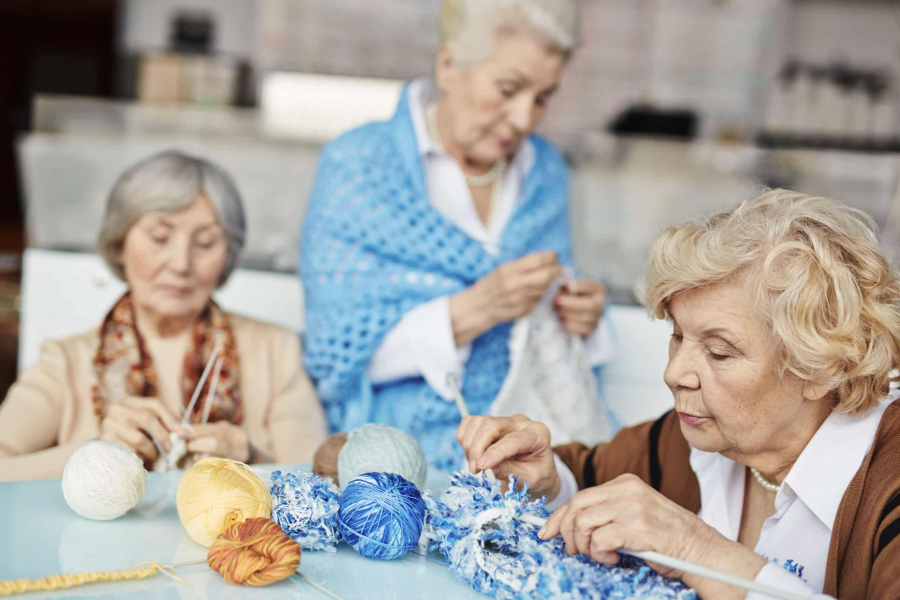Engaging individuals with dementia in stimulating activities is crucial for maintaining cognitive function and promoting social interaction. Activities tailored to their abilities and interests can significantly enhance their quality of life.
Reliable home care services play a crucial role in providing these engaging activities in the comfort of the patient’s home. By focusing on meaningful engagement, dementia in home care can help individuals maintain their mental health and emotional well-being. The following sections discuss various activities and therapies that can be incorporated into dementia care routines.
Cognitive Stimulation Activities
Cognitive stimulation is essential for individuals with dementia as it helps maintain brain function and slows the progression of cognitive decline. Activities such as puzzles, memory games, and word searches can be very beneficial. These activities challenge the brain and can be adjusted in difficulty to match the individual’s cognitive abilities.
Incorporating familiar activities from the individual’s past can also be highly effective. For example, someone who enjoys reading may benefit from being read to or discussing a book. Similarly, those who loved music can find joy and cognitive stimulation in listening to their favorite songs or playing simple musical instruments.
Reliable home care services can assist in identifying and providing suitable cognitive stimulation activities. Caregivers are trained to create and adapt enjoyable and beneficial activities, ensuring the individual remains engaged and mentally active. This personalized approach is a cornerstone of effective dementia in home care.
Physical Activities and Exercise
Physical activity is another vital component of dementia care. Regular exercise helps maintain physical health, reduces the risk of falls, and can improve mood and cognitive function. Simple exercises such as walking, stretching, and chairing suit most individuals with dementia. Caretaker incorporates these activities into daily routines, adapting them to the individual’s mobility levels.
Gardening is another excellent physical activity that provides both exercise and cognitive engagement. Planting flowers or vegetables, weeding, and watering plants can be therapeutic. This activity encourages physical movement and offers sensory stimulation and a sense of achievement.
Home care services often include structured exercise programs tailored to the individual’s abilities and interests. Professional caregivers can provide guidance and support, ensuring that exercises are performed safely and effectively.
Creative Arts and Crafts
Engaging in creative arts and crafts can benefit individuals with dementia. Activities such as painting, drawing, knitting, and crafting provide a way to express emotions and stimulate the brain. They can also be relaxing and stimulating, offering a sense of purpose and enjoyment.
Art therapy, in particular, has been shown to have positive effects on individuals with dementia. It can improve mood, reduce anxiety, and promote social interaction. Simple projects that do not require complex instructions or fine motor skills are ideal. For instance, coloring books designed for adults or creating collages from magazine cutouts can be enjoyable.
Home care services can facilitate creative activities by providing the necessary materials and support. Caregivers can encourage participation and adapt activities to suit the individual’s interests and abilities.
Social Interaction and Companionship
Social interaction is crucial for individuals with dementia as it helps combat feelings of isolation and depression. Engaging in social activities can improve cognitive function and enhance quality of life. Simple activities like conversing, playing board games, or participating in group activities can be very beneficial.
Regular visits from family and friends provide essential social interaction. Structured social activities, such as attending a local senior center or participating in community events, can also be valuable. These activities offer opportunities for social engagement and mental stimulation.
Home care services can provide companionship and support social interactions. Professional caregivers can engage the individual in meaningful conversations, accompany them on outings, and facilitate social activities. This consistent social engagement helps maintain emotional well-being and provides a sense of connection and community.
Music and Reminiscence Therapy
Music and reminiscence therapy are potent tools in dementia care. Music has a unique ability to reach parts of the brain that remain intact even in advanced stages of dementia. Listening to favorite songs, singing along, or playing simple instruments can evoke positive memories and emotions.
Reminiscence therapy involves discussing past experiences and memories. People can do it through looking at old photographs, sharing stories, or listening to music from the individual’s past. This therapy helps individuals connect with their personal history and can improve mood and cognitive function.
Home care services can incorporate music and reminiscence therapy into their care plans. Caregivers can create personalized playlists, engage in conversations about the past, and use music to calm and comfort the individual. These therapies are integral to home care and provide emotional and cognitive benefits.
Engaging individuals with dementia in meaningful activities is essential for maintaining cognitive function and emotional well-being. Cognitive stimulation activities, physical exercise, creative arts, social interaction, and music therapy effectively keep minds active. Reliable home care services are crucial in providing these activities, ensuring they are tailored to the individual’s abilities and interests. This personalized approach to dementia home care enhances the quality of life for those with memory loss, promoting mental and emotional health in a supportive and familiar environment. By incorporating these activities into daily routines, caregivers can help individuals with dementia live more fulfilling and engaged lives.
Stay in tunch for more updates and alerts visit: My Stories List!
